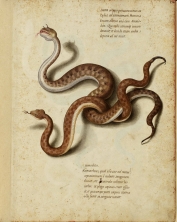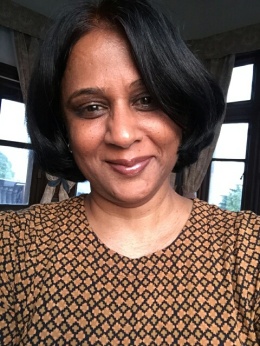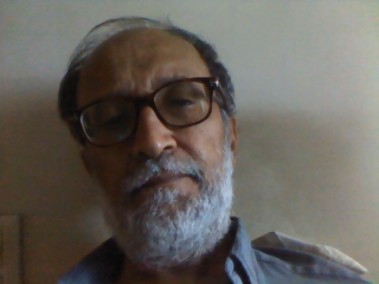Workshop on the Interface of the Sciences & the Humanities
When | 18-19 May 2016
Where | National Institute of Technology, Silchar
With the increasing formalization of knowledge, higher education and pedagogy have inherited a separation between the study of the ‘natural worlds’ (Naturwissenchaften), which is material/biotic, and that of the ‘world of humans’ (Sozial/Geistes-wissenchaften). As a result, these two domains have developed as two insulated and divorced bodies of knowledge systems. Again, the ‘natural world’ is further separated into natural sciences and technology, while the ‘world of humans’ diverge into humanities and the social sciences. However, this natural/human science binary, and more generally speaking, the dyadic logic in the taxonomy of knowledge system are typical products of post-Enlightenment/ Rationalist Western modernity (cf. Descartes, Kant) and have no resonance whatsoever in the context of the ‘pre-modern’ non-West (say, for example, Greece, Persia, Arab, India). How we study our world is often grounded in systems of values and beliefs emergent from our dispositions. Family structure, religion, state politics, economics, social class etc. among other things shape these systems of value, the very ‘paradigms’ upon which choose our objects and frame our methods of inquiries. The point, therefore, is to re-visit and understand these separations, rather the premise upon which these separations are valued, and situate them in history and context, and in so doing, rethink how this new (interdisciplinary) understanding may contribute towards transforming how we perceive the world, not as a fractured entity but as an organic whole.

Invoking ‘modern’ Science’s reliance on non-empirical/’fictional’ stuff – think of, say, the String Theory among others – the workshop questions the fundamental value system that renders possible the divorce between the Sciences & the Humanities based on dyadic values. The fact/value, analytical/perceptive, objective/subjective, nature/culture binaries retain the disciplinary separation, although these obscure a holistic vision toward an(y) ‘object of study’. The workshop intends to probe into issues of subjectivity and social constructivism in the Sciences (cf. Poincare), and reflects on the plausibility of a genuinely integrationist model instead that reconciles Humanities & the Natural Sciences
The following pointers, which are by no means exhaustive, will give an overview of the trajectory of the workshop.
- Scientific Fiction & Literary Reality (cf. Sundar Sarukkai)
- Alternative Sciences (cf. Ashis Nandy)
- Science, Technology & Augmented Reality
- Historicism in Science & Techno-determinism
- Science as Narrative
- Science, State & Ideology
- Mathematicization of Science/Technology
- Models and Reductionism
- Science/Technology & the Anthropocene
Prof. Sasheej Hegde, University of Hyderabad and Dr. Esha Shah, ex-faculty Maastricht University, Netherlands have generously agreed to serve as resource persons for the workshop.
Please register your interest by filling out the registration form before 8 May 2016. There is no registration fees for attending the workshop. We have limited seats to be allotted on first-register basis. The Participation certificates will be issued to all participants. The institute will not be able to offer accommodation or travel support to the participants. However, accommodation, if available, can be reserved for participants on payment basis.
Reaching NIT Silchar: NIT, Silchar, located on the Silchar-Hailakandi road, just 8 kms off the Silchar town. To reach NIT, Silchar campus, one has to first reach Silchar which has direct flight connections with Kolkata, Guwahati and Imphal; and direct train connections with Kolkata and Delhi via Guwahati. By road, Silchar is well connected with nearly all major cities in the North-east.
Contact: interdisciplinarity.nits@gmail.com
For registration, click here.

 Esha Shah is an engineer by training and anthropologist and historian by choice and self-learning. Since her doctorate from the Wageningen University in the Netherlands, she has been working on science and technology-led development in India on the interface of modernity and democracy. Since then, she has held research and teaching positions at the ISEC in Bangalore, the Institute of Development Studies (IDS) at University of Sussex, UK, and the Faculty of Arts and Social Sciences in Maastricht University, the Netherlands. At the IDS and at the Maastricht University she has taught MA courses on STS (science and technology studies) and globalization and development. Currently, she is developing research interests on the way in which subjectivity (including emotions and affects) shape rationality and normativity, including the objectivity in scientific knowledge. She has recently completed a two years book-writing fellowship (2013 and 2015) with the Indian Institute of Advanced Study in Shimla where she worked on a monograph that re-interprets the history of reductionism in genetic science over the twentieth-century as an affective/emotive history.
Esha Shah is an engineer by training and anthropologist and historian by choice and self-learning. Since her doctorate from the Wageningen University in the Netherlands, she has been working on science and technology-led development in India on the interface of modernity and democracy. Since then, she has held research and teaching positions at the ISEC in Bangalore, the Institute of Development Studies (IDS) at University of Sussex, UK, and the Faculty of Arts and Social Sciences in Maastricht University, the Netherlands. At the IDS and at the Maastricht University she has taught MA courses on STS (science and technology studies) and globalization and development. Currently, she is developing research interests on the way in which subjectivity (including emotions and affects) shape rationality and normativity, including the objectivity in scientific knowledge. She has recently completed a two years book-writing fellowship (2013 and 2015) with the Indian Institute of Advanced Study in Shimla where she worked on a monograph that re-interprets the history of reductionism in genetic science over the twentieth-century as an affective/emotive history.
